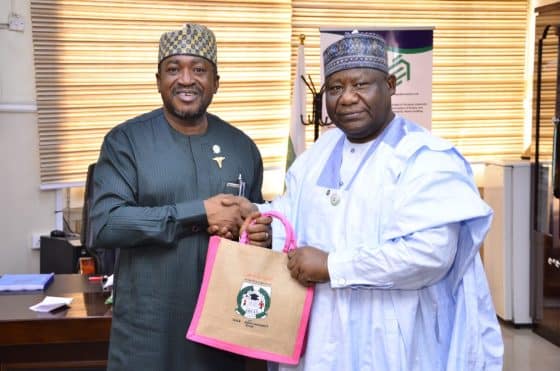FAQ
- Home
- FAQ
Frequently Asked Questions
Press Release
The public sector is the portion of the economy composed of all levels of government and government-controlled enterprises. It does not include private companies, voluntary organizations, and households. The public service manages the day-to-day affairs of the state by administering public services and back stopping government operations.
The public service reforms are about modernising public sector workforce management, replacing the current outdated laws with new legislation that embraces contemporary employment management. These will provide better outcomes for public sector employees, including improved arrangements for attracting, retaining and managing the performance of employees and using the best available employment management tools and practices.
Public service reform is a deliberate action to improve the efficiency, effectiveness, professionalism, representability and democratic character of a public service, with a view to promoting better delivery of public goods and services, with increased accountability.
The public service reforms are not about down-sizing the sector or achieving direct efficiency savings. Rather they are about modernising and improving management of the public sector. Specifically, they are about removing out-dated language and rigid rules peculiar to the public sector and introducing modern methods of recruitment and workforce management. Public sector managers and employees need flexibility in human resource management administrative arrangements to be able to respond to future service delivery challenges.
Public service reforms that improve accountability and participation, reduce corruption and improve rule-following behaviour to reduce the discretion of bureaucrats. Public sector reform is driven by various factors: fiscal and economic crises, domestic pressures and the influence of international financial institutions and donors. The Nigerian Public Service as a service delivery institution is a catalyst for national development and occupies a pivotal position in the onerous task of implementing government’s programmes and activities.
The public service of any country, including Nigeria performs certain distinct and crucial functions. It provides a number of social services to the people of a country. Such services include transportation, communications, supply of water, roads, education, health, housing, power, public enterprises and other public utilities in the interests, of socio-economic justice. It also formulates and implements laws and policies of government. By so doing, it remains the essential instrument for translating laws into reality. The public service provides continuity when governments change in a country.
Domestic conditions such as high poverty and illiteracy rates, inadequate technological base, deficient industrial and infrastructure development, and a weak private sector have necessitated Nigeria’s public sector to assume a dominant role in economic development and administrative reform.
A number of issues have been raised as constituting the failure of public service reforms. Apart from the issue of service delivery, the different reforms are still disjointed and required a more integrated approach for them to achieve the overall objective of system’s rejuvenation. The implementation progress report and critique show that the reform has a strong political will behind it, but it is still largely incoherent and uncoordinated.
The Bureau of Public Service Reforms was set up to initiate, coordinate, monitor and ensure the implementation of public service reforms in Nigeria. The Bureau has played this role by ensuring that public service reforms are coordinated, harmonized and implemented to the benefits of the public service and the citizenry.
The reality on ground is that government has not been able to fully deliver on public service provision based on its development plan in all the sectors. There is a glaring gap between the requirements of the people and their desires for public service provision and what the government has been able to actually deliver. There is an obvious gap between government budgetary allocations/expenditure for the provision of public services and the actual performance in terms of tangible deliveries. In terms of the availability, access and quality of public service provision, there is a gap between the urban and the rural areas in all parts. All these are being handled by the Bureau to ensure that the citizens benefit from the ongoing public service reforms.
The key public service sectors that tend to critically impact on the lives of the people are receiving less allocation compared to less critical areas that do not directly affect the wellbeing of the people. The budgetary allocations over the years have been in favour of recurrent expenditure due to high cost of governance and corruption, while capital expenditure, which is used to undertake projects that are meant to impact directly on the lives of the people, was assigned lesser budgetary allocations.
The current Administration is changing this narrative by allocating more resources for capital projects that have direct impact on the citizens.
The problem of low morale, corruption, limited training, inefficiency, and poor compensation constitute the key issues/challenges of Nigeria’s post-independence civil service reform experience.
The pre-retirement training programme for retiring officers of Federal Parastatals is one of the cardinal programmes of the Bureau of Public Service Reforms, BPSR. The essence of the programme is to prepare the retiring officers to face the future and to also ensure that the quality of their lives does not depreciate. Government in its wisdom thought it wise to impact on them some basic knowledge on how to go about their normal life in retirement and how they will properly utilize their retirement benefits.
The participants usually learn new thinking that would equip them to form a pool of knowledge and experience that could be easily tapped, thus forming part of the move towards the attainment of sustainable life in retirement.
The materials for the training have been prepared in book form with two volumes: Handbook and Workbook. The Handbook has been designed in a way that it could serve as reference document. Participants are usually advised to make maximum use of it, both during the programme and as a source material in the future. The Workbook contains the practical steps to be taken by the trainees to guide them in whatever business venture they may embark upon after the training exercise.
Pensions are means by which individuals accumulate savings over their working life in order to finance their consumption needs in retirement, either by means of a lump sum or by provision of annuity, while also supplying funds to end users such as corporations or governments for investment purpose. The Administration of Pension in Nigeria have experienced inconsistency in policies due to its many challenges since inception- delay in payment of pensions and gratuities to deserving retirees in Nigeria fuelled by lack of accountability, poor leadership, embezzlement of pension fund, inaccurate pensioner’s records and gross incompetence on the path of Pension Administrators.
The Pensions Reforms Act 2014 was designed to achieve the following goals:
- Establish a uniform and sustainable pension system in Nigeria
- Ensure efficient and transparent management of pension funds.
- Promote saving culture among Nigerian workers.
- Promote wider coverage of Nigerian workers.
- Establishes strong regulatory and supervisory framework to secure through the activities of the National Pension Commission.
The 2014 Act makes provisions targeted at promotion of welfare of workers after retirement from active service either at the public or the private sector of the economy by introducing new features to ensure the attainment of the set goals and objectives.
Increase in Pension Contribution rate – the provision for an increased pension contribution rate from 15% to 18% of monthly emolument, where 8% will be contributed by employee and 10% by the employer. This will boost the amount that accrues to the Retirement Savings Account. Where an employer decided to pay the full contribution- the minimum contribution is 20% of the employee monthly emolument.
While safeguarding the future by boosting the retirement benefits of workers- there is a neglect of what the employee takes home after making the contribution of 8% and paying taxes among other lawful deductions. In the storm of hyper-inflation and non – compliance by many employers with the current national minimum wage.
Employees of organizations with less than 3 employees as well as self-employed persons can voluntarily participate in the CPS under the Micro Pension Plan (MPP). This is commendable and the ability of the employee to voluntarily make additional contribution to the scheme will encourage the saving culture. The Act provides for heavier punishments for pension related offences. The legislative intention was to deter pension partners against mismanagement and discourage corruption in the pension industry in Nigeria.
Pension Transitional Arrangement Directorate (PTAD), was set up to address issues related to pension administration, particularly for pensioners under the Defined Benefit Scheme (DBS). It plays a crucial role in ensuring that pensioners receive their entitlements in a timely and transparent manner, thereby contributing to social security and the well-being of retirees in Nigeria.
As at December 2015, total number of pensioners transferred to PTAD across the four (4) operational departments was 287,981.
PTAD currently manages a total of 178,523 pensioners across the four operational departments as at end of April 2024.
The increase in the salary of Civil Servants will play significant in ensuring commitment and increased productivity. With higher salaries, civil servants have more disposable income, leading to increased spending on goods and services. This will stimulate demand in various sectors of the economy, especially retail, hospitality, and leisure.
The Steering Committee on Reforms, among others, is saddled with the functions of providing guidance and technical leadership in reform design and implementation; initiating action on reforms at different levels, and; ensuring the monitoring and evaluation of reform implementation for impact and effectiveness.

Federal Secretariat Complex, New Extension, Plot 04, Phase II, Block D, 3rd Floor, Shehu Shagari Way,
GARKI, ABUJA, NIGERIA.
Newsletter
Subscribe to the BPSR newsletter to receive the latest updates on public sector reforms, research publications, events, and policy insights.



